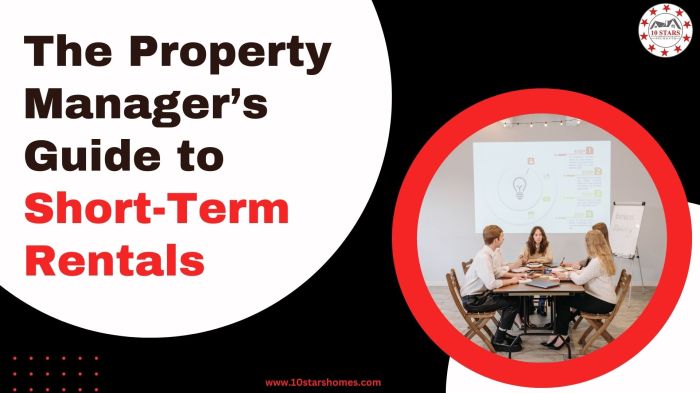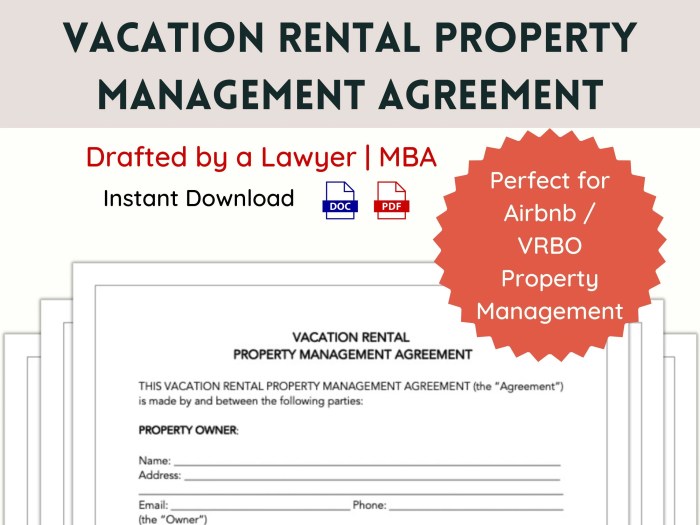Unlocking Success: Short Term Property Management Strategies
Short term property management is a dynamic field that requires a strategic approach to maximize returns and guest satisfaction. From preparing rental properties to effective communication with guests, every aspect plays a crucial role in ensuring a seamless experience. Let's delve into the intricacies of short term property management and explore the key elements that contribute to its success.
Introduction to Short Term Property Management

Short term property management involves renting out properties for a brief period, typically less than a year. This can include vacation rentals, corporate housing, or short-term stays for travelers.
Examples of Properties Suitable for Short Term Rental
- Beachfront condos in popular tourist destinations
- City apartments in business districts
- Cottages or cabins in scenic rural areas
Benefits of Short Term Property Management
- Higher rental income potential due to premium rates for short stays
- Flexibility to use the property for personal stays when not rented out
- Ability to adjust pricing based on demand and seasonality
- Less wear and tear on the property compared to long term rentals
Setting Up Short Term Rental Properties
When preparing a property for short term rentals, there are several key steps to consider to ensure a successful and profitable venture. From interior design considerations to legal requirements, each aspect plays a crucial role in the overall management of short term rental properties.
Interior Design Considerations
- Choose durable and easy-to-maintain furniture and decor to withstand frequent use by different guests.
- Opt for a neutral color palette and timeless design elements to appeal to a wide range of tastes and preferences.
- Include comfortable bedding, quality linens, and essential amenities to enhance the guest experience and receive positive reviews.
- Incorporate functional storage solutions to keep the space organized and clutter-free for guests during their stay.
- Consider the layout and flow of the property to optimize space and create a welcoming atmosphere for guests.
Legal Requirements and Permits
- Research and comply with local zoning regulations and homeowner association rules regarding short term rentals in your area.
- Obtain necessary permits or licenses required by your city or municipality to legally operate a short term rental property.
- Ensure your property meets safety standards, including fire and carbon monoxide detectors, emergency exits, and proper insurance coverage.
- Understand tax implications and reporting requirements for short term rental income to avoid any legal issues or penalties.
- Implement clear rental agreements, house rules, and guest expectations to protect both yourself and your guests during their stay.
Marketing Strategies for Short Term Rental Properties

When it comes to attracting short term tenants for your rental properties, effective marketing strategies play a crucial role in ensuring maximum occupancy and profitability. One of the key elements in marketing short term rentals is the use of high-quality photos and detailed descriptions in property listings.
These visual and descriptive elements help potential guests get a clear idea of what your property has to offer, increasing the chances of bookings.
Importance of High-Quality Photos and Descriptions
High-quality photos showcasing the best features of your rental property can make a significant impact on potential guests. Bright, well-lit images that highlight the key selling points of the property, such as spacious rooms, modern amenities, and attractive decor, can capture the attention of travelers browsing through listings.
Additionally, detailed and accurate descriptions that provide information on the property's location, amenities, and nearby attractions can help guests make an informed decision when choosing a rental.
Comparison of Online Platforms for Advertising
- Airbnb: As one of the most popular platforms for short term rentals, Airbnb offers a wide reach and a user-friendly interface for hosts to list their properties. The platform also provides tools for hosts to manage bookings, set pricing, and communicate with guests.
- VRBO (Vacation Rental By Owner): VRBO caters to a slightly different audience than Airbnb, focusing more on vacation rentals and second homes. The platform allows hosts to set their own rules and policies for guests, giving them more control over their rental properties.
- Booking.com: While known primarily for hotel bookings, Booking.com also features a section for short term rentals. Hosts can list their properties on the platform and benefit from the site's large user base and marketing efforts.
Guest Communication and Management
Clear communication with guests in short term rentals is crucial for ensuring a positive experience and managing expectations. By effectively handling bookings, inquiries, and guest reviews, property managers can build a strong reputation and increase guest satisfaction.
Handling Bookings
- Respond promptly to booking inquiries to secure reservations.
- Provide detailed information about the property, amenities, and check-in process to set clear expectations.
- Use a reliable booking platform to streamline the reservation process and avoid double bookings.
Handling Inquiries
- Respond to inquiries in a timely manner to address any questions or concerns the guest may have.
- Be transparent about pricing, availability, and any additional fees to prevent misunderstandings.
- Offer assistance and recommendations to help guests make informed decisions about their stay.
Managing Guest Reviews
- Encourage guests to leave reviews after their stay to gather feedback and improve the guest experience.
- Respond to both positive and negative reviews professionally and promptly to show that guest feedback is valued.
- Use guest reviews to highlight the strengths of the property and address any areas for improvement.
Tips for Ensuring a Positive Guest Experience
- Provide clear instructions for check-in, check-out, and house rules to avoid any misunderstandings.
- Offer amenities and services that enhance the guest experience, such as complimentary toiletries or a welcome basket.
- Communicate proactively with guests before, during, and after their stay to address any issues or requests promptly.
Maintenance and Cleaning Protocols
Maintaining a consistent maintenance and cleaning schedule is crucial for the success of short term rental properties. By keeping the property in top condition, you can attract more guests and ensure positive reviews.
Maintenance Schedule for Short Term Rental Properties
- Regularly inspecting all appliances, fixtures, and systems to address any issues promptly.
- Scheduling routine cleaning and maintenance tasks such as HVAC filter replacements, deep cleaning carpets, and checking for leaks.
- Updating the property's decor and furnishings to keep it looking fresh and inviting for guests.
Importance of Cleaning Protocols between Guest Stays
- Thoroughly cleaning and sanitizing all surfaces, bathrooms, and kitchen areas to ensure a safe and healthy environment for incoming guests.
- Washing all linens and towels with high-quality detergents to maintain cleanliness and prevent the spread of germs.
- Implementing strict protocols for disinfecting high-touch surfaces like doorknobs, light switches, and remote controls.
Tips for Ensuring the Property is Well-Maintained for Short Term Rentals
- Provide a detailed guest handbook outlining maintenance procedures and emergency contacts for any issues that may arise.
- Hire professional cleaning services to ensure thorough and consistent cleaning between guest stays.
- Regularly communicate with guests to gather feedback on the property's condition and address any maintenance concerns promptly.
Final Review

In conclusion, short term property management demands attention to detail, proactive communication, and efficient maintenance protocols. By implementing effective strategies and staying attuned to market trends, property owners can unlock the full potential of their rental properties. Embrace the challenges, seize the opportunities, and elevate your property management game to new heights.
Expert Answers
What are the key differences between short term property management and long term rentals?
Short term property management offers flexibility, higher rental rates, and the potential for increased income compared to long term rentals. However, it requires more frequent turnover and meticulous attention to guest needs.
How can property owners attract short term tenants effectively?
Effective marketing strategies such as professional photos, detailed descriptions, and listing on popular platforms like Airbnb can attract short term tenants. Providing exceptional guest experiences also plays a pivotal role.
What legal requirements and permits are necessary for short term rentals?
Legal requirements for short term rentals vary by location but may include obtaining permits, complying with zoning laws, and collecting occupancy taxes. It's crucial to research and adhere to local regulations.
How often should maintenance be conducted for short term rental properties?
Maintenance for short term rental properties should be conducted regularly to ensure the property remains in top condition. This may include routine inspections, addressing repairs promptly, and refreshing amenities between guest stays.
What are some tips for managing guest expectations in short term rentals?
Clear communication, setting accurate property descriptions, and addressing inquiries promptly can help manage guest expectations effectively. Providing a welcoming environment and anticipating guest needs can also enhance their experience.